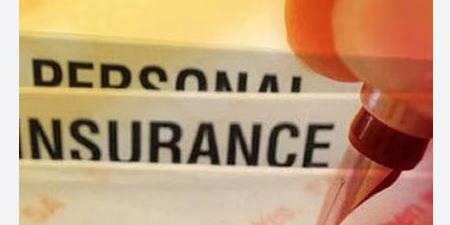Perhaps of the most impressive weapon an insurance agency can use to overcome a dishonesty guarantee is the “certified question” tenet. Under this regulation, for however long there was a veritable debate in regards to inclusion or the sum owed, the back up plan can’t be expected to take responsibility for having kept the contested strategy helps regardless of whether it later turned out they were owed. Manor Chamberay Mortgage holders Ass’n v. Related Int’l Ins. Co., 90 Cal.App.4th 335 (2001). By and large, this protection has been applied most regularly in distributed cases including disagreements regarding disrupted legitimate issues or where the safety net provider’s position was upheld by a certified master. See e.g., Fraley v. Allstate Ins. Co., 81 Cal.App.4th 1282 (2000); Guebara v. Allstate Ins. Co., 237 F.3d 987 (ninth Cir. 2001); Opsal v. USAA, 2 Cal.App.4th 1197 (1991).
As of late, notwithstanding, a distributed choice extended the utilization of the regulation to disagreements regarding general harms. In Hovsepyan v. GEICO Gen. Ins. Co., — F.Supp.3d — , 2022 WL 2873059, at *7 (E.D. Cal. July 21, 2022), the locale court noticed that the worth of a petitioner’s general harms is “a matter on which there truly might be a wide contrast of opinion”.[1] Thusly, the court held, the guarantor couldn’t be responsible for dishonesty in light of a disagreement regarding general harms despite the fact that the inquirer at last was granted more than the back up plan advertised.
In Hovsepyan, three insureds were harmed in a mishap brought about by a uninsured driver. The insureds submitted claims for uninsured driver advantages to their safety net provider, GEICO. In any case, while the two sides settled on the worth of the insureds’ clinical specials, they couldn’t agree on the general harms – the insureds guaranteed a sum of more than $100,000 in everyday harms, though GEICO assessed those professes to be worth about $26,000. Due to the gatherings’ disagreement regarding general harms, the UM claims continued to assertion. The mediator granted the insureds a sum of about $54,000 for their aggravation and enduring, which was more than 100 percent more than GEICO had presented for those harms.
After GEICO paid the honor, the insureds sued for dishonesty. Accordingly, GEICO recorded a movement for rundown judgment battling that the dishonesty guarantee flopped under California’s “certifiable question” tenet, among other grounds.[2] The Court conceded GEICO’s outline judgment movement.
The Court noticed that the “disparity between the gatherings’ particular settlement positions before the uninsured driver mediation are owing to contrasts in their valuation of general, ‘agony and enduring’ harms.” That’s what the Court held “[e]valuating such harms is an innately abstract cycle” that supported use of the authentic debate teaching. (Id. at *6.) In coming to this end result, the Court understood the thinking in an unpublished government case, Holenda v. Endlessness Select Ins. Co., No. CV13-07128R (CWx), 2014 WL 559381 (C.D. Cal. Feb. 13, 2014), in which the locale court come to a comparative end result:
As for general harms specifically, Holenda perceived their emotional nature, taking note of that “[t]ranslating torment and pain into dollars can, best case scenario, be just an erratic remittance, and not a course of estimation.” Id., refering to Beagle v. Vasold, 65 Cal. 2d 166, 172, 53 Cal.Rptr. 129, 417 P.2d 673 (1966). The court additionally noticed that the sum to be granted for such harms is “a matter on which there really might be a wide contrast of assessment” (id., refering to Seffert v. Los Angeles Travel Lines, 56 Cal. 2d 498, 508, 15 Cal.Rptr. 161, 364 P.2d 337 (1961)), and “are intrinsically dependent upon certified question.” (Holenda, at *4.)
Hovsepyan at *6. Hovsepyan’s utilization of the certifiable question tenet to general harms is huge. This is on the grounds that the goal of uninsured/underinsured driver asserts frequently depend on arguments about the worth of general harms. Before Hovsepyan, there was no distributed point of reference in California on this significant issue. Hence, this choice ought to give direction to assessing future dishonesty cases including arguments about broad harms.
Commentaries
[1] The Hovsepyan choice is right now being pursued before the 10th Circuit.
[2] GEICO likewise declared a legal time limit guard that was a free reason for the movement. That protection, albeit fruitful, isn’t tended to in this article.
